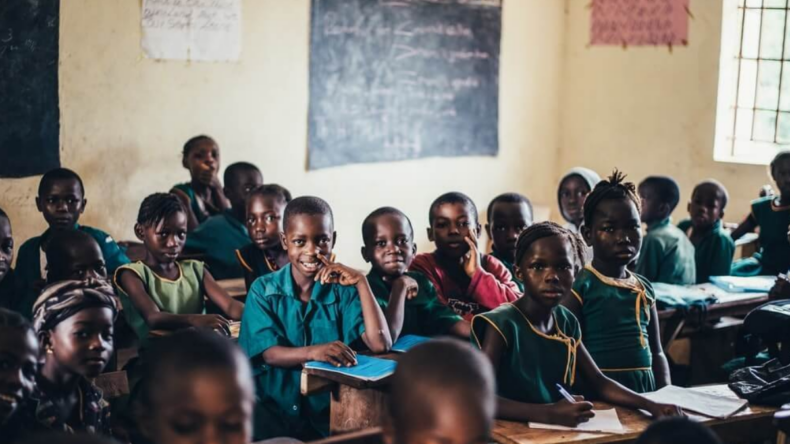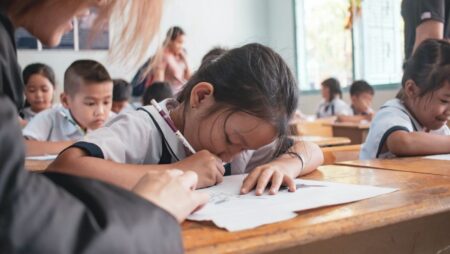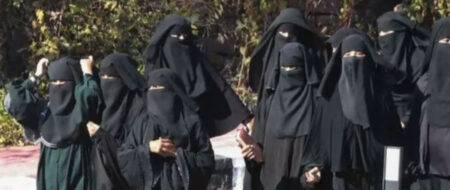The Maharashtra State Council for Education Research and Training (SCERT) had organised this discussion to facilitate a talk ahead of the reopening of schools. Various educators participated in the conversation and expressed their viewpoints.
Taking “Responsibility for the Students” and “Ensuring Effective Learning”
Ahead of the reopening of schools from October 4, Maharashtra State Council for Education Research and Training (SCERT) organised an online discussion between educators and state school education minister Varsha Gaikwad on Friday where the minister called “taking responsibility for the students” and “ensuring effective learning” in the school as top priorities.
The announcement for the reopening had come last week after Chief Minister Uddhav Thackeray had given his approval.
As per Gaikwad’s statements, Schools are to reopen across Maharashtra on October 4. In rural areas, classes will resume for Classes 5 to 12, and in Urban areas, schools will reopen for Classes 8 to 12.
Gaikwad said schools, teachers, and stakeholders must take every step possible to ensure that the institutions reopen safely.
“However, once they reopen, it will be our responsibility to ensure that the children are safe. Even if there are Covid-19 cases, they need to be handled well by school authorities,” she said.
“Lessons from Hiware Bazar village (in Ahmednagar district) on handling Covid-19 need to be replicated across the state,” she added.
In May 2020, when India was experiencing a horrific second wave of the covid pandemic, Hiware Bazar in Maharashtra’s Ahmednagar district had become covid free.
It was due to the leadership and efforts of the Up-Sarpanch of the village, Padma Shri Popatrao Pawar.
The Maharashtra State Council for Education Research and Training (SCERT) had organised this discussion to facilitate a talk ahead of the reopening of schools. Various educators participated in the debate and expressed their viewpoints.
Popatrao Pawar, who was also part of the discussion, said that the village had successfully managed offline classes from classes 1 to 10 since June 15.
“We had the support of students and their parents. The parents were sensitised, and slowly their reluctance changed to confidence, and all the students started coming to school,” Pawar further said.
Samir Dalwai, a Member of Maharashtra’s Covid-19 paediatric task force, said that the education department must decide on the students’ syllabus and ensure students get enough time for preparing for exams.
“The students should be given a minimum of two weeks to adjust after a very long gap of home schooling.
They should not get pressured with exams immediately after joining the school,” his statement reads. Students should get a substantial time to share their thoughts, mingle, meet and greet their friends, Dalwai added.
Educator Hemangi Joshi said parents should not insist on vaccination at this point for children. The teachers should handle if students have got used to screens and feel withdrawn, she added.
Joshi also highlighted the need for counselling for teachers after 18 months of online teaching if they require it.
Former director of education, Vasant Kalpande, was also present in the discussion. He said that the students should get free time to talk, express themselves and acclimate to physical schooling.
“Let them talk about Covid-19, and if there are misconceptions, they should get cleared by teachers. Getting rid of screens altogether is not easy as it has become a part of the system. So, if these devices get used under the guidance of teachers and parents, they would be a good source of learning,” he added.
Until now, Maharashtra schools were only conducting physical classes in those areas reporting relatively fewer COVID-19 cases.
As per the Govt. notifications, Physical classes would not resume yet for Classes 1 to 7 in urban areas and 1 to 4 in rural areas.
Though schools will reopen in the entire state, there is no compulsion to attend physical classes, and parents’ consent will be necessary if they wish to attend.













